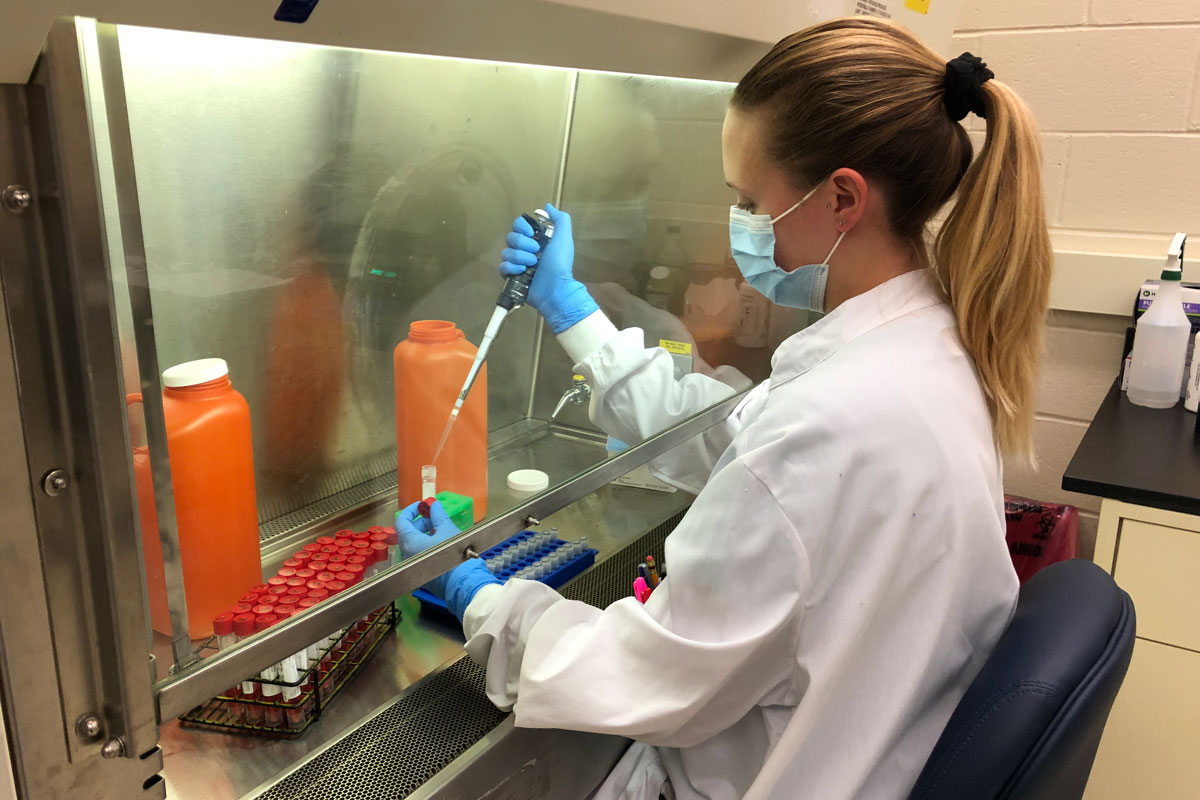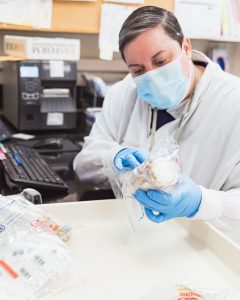
Many of us have heard of “the lab,” but how many of us know all that makes up this component of UConn Health’s clinical operations? The Department of Pathology and Laboratory Medicine includes several around-the-clock functions performed by dedicated employees who continued to report to work throughout the pandemic to ensure these crucial functions continued, and they haven’t stopped. Dr. Enrique Ballesteros, the department chair, Jessica Underwood, laboratory administrative director, and Lori Avery, microbiology supervisor, provide some additional insight.
What goes on in “the lab”?
The clinical laboratory at UConn Health includes many services that provide a variety of tests. The Division of Laboratory Medicine includes microbiology (where COVID specimens are tested), clinical chemistry and hematology/coagulation (also known as the core lab), blood bank, special chemistry, point of care, decentralized laboratory testing, phlebotomy, send-outs, and outreach. The Division of Anatomic Pathology includes surgical pathology, histology, and cytology.
‘Special shout-out should be given to all of the laboratory, but especially to microbiology, send-outs, second shift, and weekend staff.’
—Jessica Underwood
The core laboratory is 24/7, performing the routine chemistry, hematology and coagulation testing needed around the clock. Blood bank is also 24/7.
How has the pandemic impacted your work?
Microbiology, central processing, and the send-out bench have taken on additional work and added significance due to the pandemic.
The microbiology team, including supervisors and medical technologists, worked tirelessly to bring up the current Quidel and Cepheid PCR tests we have to perform COVID-19 testing, and are continually working to bring up other platforms for FLU, RSV and COVID-testing in-house.
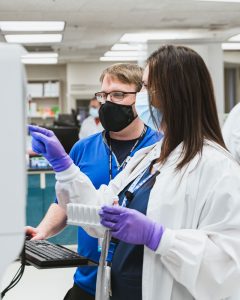
Many of our testing platforms have had to change due to what the vendors have available. Our send-out bench was extremely busy during the beginning of the pandemic when we sent many samples to The Jackson Laboratory for Genomic Medicine. Those employees were responsible for putting all specimens on a packing list to JAX, and our second-shift staff in the core laboratory was responsible for resulting every specimen until the interface was built and bi-directional and able to receive and send information to JAX electronically.
There should also be a shout out to our administrative officer who put in several emergency PO’s and CRF’s to bring the testing in house. Another shout out should go to transport, and to our contracts/procurement teams, who worked quickly to get us ready and able to perform testing.
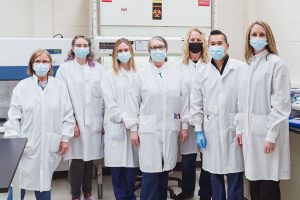
The lab was also responsible (microbiology section) to sequester and secure supplies for COVID-19 sampling. The supervisor, with administration, spends several hours a week, even now, ensuring we get our supplies for sampling and for performing tests.
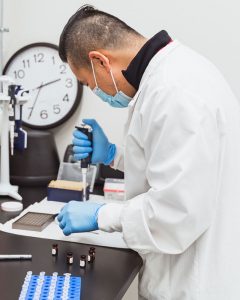
Some weeks are pretty stressful. Vendors many times send back order notices, which leaves us scrambling to find another vendor or work tirelessly to sequester a new product and validate it quickly. Honestly administrative staff and the supervisors were instrumental, checking pending lists for results and taking calls at night and over the weekends to help ensure our patients and staff were safe and results were populated in a timely fashion.
While many departments were able to telecommute, what was happening with your staff?
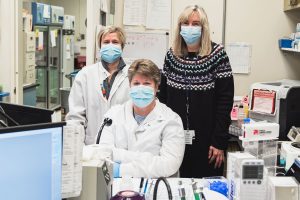
All laboratory personnel physically report to work because of the need to process and test patient specimens. During the first part of the pandemic we were able to give some staff some telecommuting opportunities, but only for a few days a week depending on the section. Blood bank did not get this opportunity due to the staffing requirements.
What aspects of your work become especially challenging or potentially dangerous because of COVID-19?
Sample handling, specimen leaks, and it is also important to be diligent and follow infectious disease protocols for handling specimens. Phlebotomists are also exposed to patients during blood draws and must follow UConn Health initiatives for appropriate protective equipment protocols. Microbiology staff must work with samples in a biological safety cabinet.
What else should the rest of UConn Health know about the contributions of the Department of Pathology and Laboratory Medicine, particularly over the last 10 months?
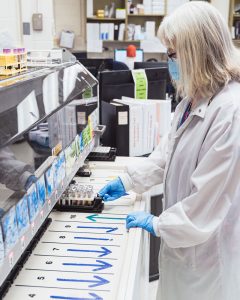
Importantly, the in-house COVID testing allows for a decreased turnaround time for inpatient results, which decreases the amount of PPE used. It also prioritizes employee testing so critical staff can return to work sooner and supports outpatient procedures with pre-admission testing.
Special shout-out should be given to all of the laboratory, but especially to microbiology, send-outs, second shift, and weekend staff. The clinical microbiology staff, led by the supervisor, were able to validate new testing platforms and bring on new testing. This required many to work outside their comfort zone and fit in validations/new trials on patient samples during their normal working day schedule.
We also would like to especially acknowledge transportation, phlebotomy, central processing and our send-out bench, who are all instrumental. Another shout out should go to transport, and to our contracts/procurement teams; we needed them to work with us quickly to get us ready and able to perform testing.
